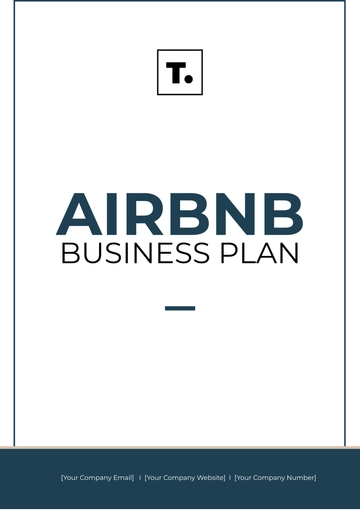Free Real Estate Marketing Business Plan Layout

I. Executive Summary
A. Business Overview
(Provide a brief introduction to your real estate business, including its history, primary services, and market focus. Summarize what sets your business apart from competitors.)
B. Mission Statement
(Articulate the core purpose and values of your business in a concise statement. This should reflect your commitment to clients and the real estate market.)
C. Vision Statement
(Describe the long-term goals and aspirations of your business. Explain how you envision the future of your company and its impact on the industry.)
D. Key Objectives
(List specific, measurable goals you aim to achieve within a set timeframe. Include both short-term and long-term objectives to provide a clear direction.)
E. Summary of Strategies
(Offer a snapshot of the main marketing strategies and tactics you will employ. Highlight the overarching approach to reach your target market and achieve your objectives.)
II. Market Analysis
A. Industry Overview
(Analyze the current state of the real estate industry, including key trends and growth areas. Discuss how these trends impact your business and the opportunities they present.)
B. Market Trends
(Identify and describe significant trends affecting the real estate market, such as changes in buyer preferences or economic factors. Explain how these trends will influence your marketing strategy.)
C. Target Market
Demographics
(Detail the specific characteristics of your ideal clients, such as age, income, and occupation. Provide data that illustrates the size and potential of this market segment.)
Psychographics
(Explore the lifestyle, values, and interests of your target audience. Understanding these factors will help tailor your marketing messages to resonate with them.)
D. Competitive Analysis
Major Competitors
(Identify key competitors in your market, including their strengths and weaknesses. Assess their marketing strategies and how you can differentiate yourself.)
Competitive Advantage
(Highlight your unique selling points and how they give you an edge over competitors. Explain how your advantages address market gaps or client needs.)
E. SWOT Analysis
Strengths
(List your business’s internal strengths, such as a strong reputation or skilled team. Explain how these strengths support your marketing efforts.)
Weaknesses
(Identify internal challenges or limitations, such as limited resources or brand recognition. Discuss strategies to mitigate these weaknesses.)
Opportunities
(Explore external opportunities in the market, like emerging trends or underserved niches. Describe how you plan to capitalize on these opportunities.)
Threats
(Analyze potential external threats, such as economic downturns or increased competition. Outline how you will address or minimize these risks.)
III. Marketing Strategies
A. Branding
Brand Positioning
(Define how you want your brand to be perceived in the market compared to competitors. Describe the attributes and values that your brand represents.)
Brand Messaging
(Develop key messages that communicate your brand’s value proposition. Ensure your messaging is consistent across all marketing channels.)
B. Digital Marketing
Website Strategy
(Outline the goals and features of your website, such as user experience and SEO. Explain how your website will attract and convert leads.)
Social Media
(Detail your approach to using social media platforms to engage with your audience. Include plans for content creation, posting frequency, and engagement tactics.)
Email Marketing
(Describe your email marketing strategy, including types of campaigns and target audiences. Emphasize how you will use email to nurture leads and maintain client relationships.)
C. Traditional Marketing
Print Advertising
(Discuss the use of print media, such as brochures and flyers, in your marketing efforts. Describe how print advertising will complement your digital strategies.)
Direct Mail
(Explain your approach to direct mail campaigns, including target lists and messaging. Highlight how direct mail will help reach specific segments of your audience.)
Networking Events
(Outline your strategy for participating in or hosting real estate events. Explain how these events will help build relationships and generate leads.)
D. Promotional Tactics
Open Houses
(Detail how you will organize and promote open houses to attract potential buyers. Include strategies for maximizing attendance and engagement.)
Property Showcases
(Describe plans for showcasing properties through virtual tours or in-person events. Explain how these showcases will highlight key features and appeal to buyers.)
Referral Programs
(Develop a plan for encouraging referrals from satisfied clients or partners. Include incentives and strategies for tracking and rewarding referrals.)
E. Partnerships and Collaborations
Local Businesses
(Identify potential local business partners and describe how collaborations can enhance your marketing reach. Highlight mutual benefits and marketing opportunities.)
Real Estate Associations
(Discuss how partnerships with real estate associations can boost your credibility and expand your network. Include plans for engaging with these organizations.)
IV. Sales Goals and Objectives
A. Sales Targets
Monthly Targets
(Set specific sales goals for each month, including the number of properties sold or revenue generated. Provide a rationale for these targets based on market conditions.)
Quarterly Targets
(Define quarterly sales objectives and how they align with your overall business goals. Include strategies for achieving these targets and monitoring progress.)
B. Revenue Projections
Short-Term Projections
(Forecast expected revenue for the next 6 to 12 months. Base projections on current market trends and historical performance.)
Long-Term Projections
(Estimate revenue for the next 1 to 5 years, considering potential market changes and growth opportunities. Include factors that may impact long-term revenue.)
C. Performance Metrics
Lead Generation
(Identify key metrics for tracking lead generation efforts, such as sources and volume of leads. Describe how these metrics will inform your marketing strategies.)
Conversion Rates
(Track the percentage of leads that convert into clients or sales. Explain how you will measure and improve conversion rates to optimize sales performance.)
Customer Acquisition Costs
(Calculate the costs associated with acquiring new clients, including marketing and sales expenses. Discuss strategies for reducing these costs while maintaining effectiveness.)
V. Budget and Financial Planning
A. Marketing Budget
Advertising Costs
(Break down the budget for various advertising channels, including online and offline options. Justify the allocation based on expected return and effectiveness.)
Promotional Materials
(Allocate funds for creating and distributing promotional materials, such as brochures and signage. Explain the role of these materials in your marketing strategy.)
Technology Investments
(Budget for technology tools and platforms, such as CRM systems or marketing software. Describe how these investments will enhance your marketing efforts.)
B. Financial Forecast
Projected Income
(Provide a detailed projection of income based on sales goals and market conditions. Include assumptions and variables affecting income.)
Projected Expenses
Estimate all expenses, including marketing costs, operational expenses, and overhead. Ensure that projections are realistic and aligned with your revenue goals.
C. ROI Analysis
Cost-Benefit Analysis
(Evaluate the costs of marketing activities against their expected benefits. Provide insights into the financial impact and value of each marketing initiative.)
Measurement and Adjustments
(Describe how you will measure the success of your marketing investments and make necessary adjustments. Include methods for tracking ROI and refining strategies.)
VI. Implementation Plan
A. Timeline
Key Milestones
(Outline major milestones and deadlines for implementing your marketing strategies. Include start and end dates for key activities.)
Deadlines
(Set specific deadlines for completing tasks and achieving goals. Ensure that the timeline is realistic and aligns with your business objectives.)
B. Responsibilities
Team Roles
(Define the roles and responsibilities of team members involved in executing the marketing plan. Clearly outline who is accountable for each task or initiative.)
External Partners
(Identify any external partners or agencies that will assist with your marketing efforts. Describe their roles and how they will contribute to the plan’s success.)
C. Resource Allocation
Human Resources
(Allocate necessary human resources, including marketing staff and support personnel. Ensure that your team has the skills and capacity to execute the plan.)
Technological Resources
(Detail the technological resources required, such as software tools and hardware. Explain how these resources will support your marketing activities.)
VII. Evaluation and Monitoring
A. Performance Review
Regular Assessments
(Establish a schedule for reviewing and assessing the performance of your marketing strategies. Include criteria for evaluating success and areas for improvement.)
Feedback Mechanisms
(Implement methods for collecting feedback from clients and team members. Use this feedback to refine and enhance your marketing efforts.)
B. Adjustments and Improvements
Strategy Tweaks
(Describe how you will make adjustments to your marketing strategies based on performance data. Include a process for implementing changes effectively.)
Market Adaptations
(Address how you will adapt your strategies to changes in the market or industry. Ensure that your plan remains relevant and responsive to external factors.)
- 100% Customizable, free editor
- Access 1 Million+ Templates, photo’s & graphics
- Download or share as a template
- Click and replace photos, graphics, text, backgrounds
- Resize, crop, AI write & more
- Access advanced editor
Utilize the Real Estate Marketing Business Plan Layout Template from Template.net to streamline your marketing strategy. This customizable template features an editable format, allowing you to tailor each section to your specific needs. Enhance your planning with the AI Editor Tool for effortless adjustments and optimized content, ensuring a professional and effective marketing approach.
You may also like
- One Page Business Plan
- Coffee Shop Business Plan
- Restaurant Business Plan
- Food Business Plan
- Real Estate Business Plan
- Executive Summary Business Plan
- Cover Page Business Plan
- Nonprofit Business Plan
- Daycare Business Plan
- Construction Business Plan
- Startup Business Plan
- Medical Business Plan
- Bakery Business Plan
- Service Plan
- Hotel Business Plan
- Catering Business Plan
- School Business Plan
- Healthcare Business Plan
- Transportation Plan
- Sports Plan
- Car Wash Business Plan
- Salon Business Plan
- Clothing Business Plan
- Farming Business Plan
- Boutique Plan













